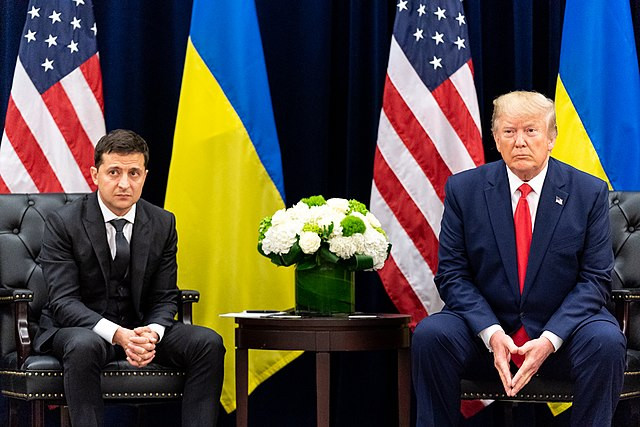European leaders said Sunday they would join Ukrainian President Volodymyr Zelenskyy in Washington for high-stakes talks with President Donald Trump, as the U.S. leader presses Kyiv to accept a peace deal shaped by his summit with Russian President Vladimir Putin.
The meeting, scheduled for Monday at the White House, comes after Trump's Alaska talks with Putin, where the U.S. president signaled greater alignment with Moscow on settling Europe's bloodiest conflict in eight decades. The decision by European heads of state to stand beside Zelenskyy underscores their concern that Kyiv could be pushed into territorial concessions.
"The Europeans are very afraid of the Oval Office scene being repeated and so they want to support Mr. Zelenskyy to the hilt," said retired French Gen. Dominique Trinquand, a former head of France's military mission at the United Nations. He added, "It's a power struggle and a position of strength that might work with Trump."
European Commission President Ursula von der Leyen confirmed on X that she will participate in the discussions "at the request of President Zelenskyy." French President Emmanuel Macron, German Chancellor Friedrich Merz, and NATO Secretary-General Mark Rutte also announced plans to travel, though their offices did not specify whether they would be present inside the Oval Office during the meeting.
Trump, who has said Ukraine should make a deal with Russia because "Russia is a very big power, and they're not," told supporters on social media to expect "BIG PROGRESS ON RUSSIA." According to people briefed on the negotiations, discussions included proposals for Russia to withdraw from small portions of occupied territory in exchange for Ukraine ceding control over the fortified Donbas region.
Trump envoy Steve Witkoff told CNN's State of the Union that Washington had secured an unprecedented concession from Moscow: "The United States could offer Article 5-like protection, which was the first time we had ever heard the Russians agree to that." Article 5 of NATO's charter obligates members to view an attack on one as an attack on all, though Ukraine's allies remain wary given Russia's prior breaches of agreements, including the 1994 Budapest Memorandum.
Secretary of State Marco Rubio suggested Ukraine may face difficult choices. "If peace is not going to be possible here and this is just going to continue on as a war, people will continue to die by the thousands ... we may unfortunately wind up there, but we don't want to wind up there," he said on CBS's Face the Nation.
European leaders have been working to stiffen Kyiv's negotiating hand. On Sunday, German, French, and British leaders convened to push for robust guarantees, including U.S. security commitments and no limits on Ukraine's future military capacity. Von der Leyen, setting conditions, declared, "As I've often said, Ukraine must become a steel porcupine, indigestible for potential invaders."






